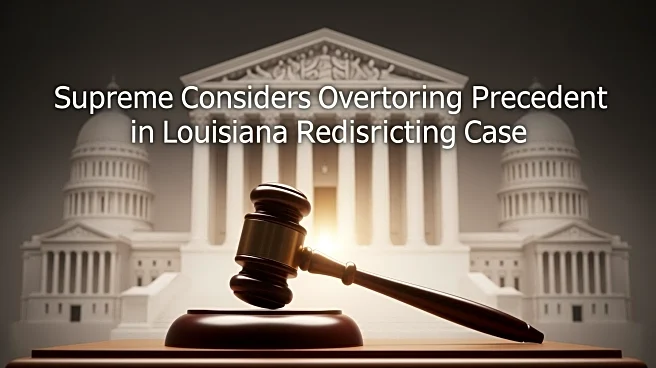What's Happening?
The Supreme Court is hearing arguments in a case that challenges the redistricting of Louisiana's congressional map, which added a second Black-majority district. Louisiana officials are calling for the overturning of the Thornburg v. Gingles precedent,
which sets the standard for determining violations of the Voting Rights Act. The case could redefine how courts assess racial considerations in electoral maps, potentially impacting minority representation across the U.S.
Why It's Important?
This case could reshape the legal framework for redistricting, affecting how minority groups are represented in legislative bodies. Overturning the Gingles precedent could make it more difficult for minority voters to challenge electoral maps that dilute their voting power. This would have nationwide implications, potentially reducing minority representation in Congress and state legislatures, and altering the political landscape in favor of parties that benefit from less minority-majority districts.
What's Next?
The Supreme Court's decision could lead to changes in how states approach redistricting, with potential ripple effects on upcoming elections. If the precedent is overturned, states may have more leeway in drawing districts without considering racial impacts, prompting further legal challenges and legislative debates. Stakeholders, including civil rights groups and political parties, will likely respond to the ruling with advocacy and policy proposals.
Beyond the Headlines
The case underscores the tension between race-conscious policies and constitutional principles of equal protection. It raises broader questions about the role of race in public policy and the ongoing struggle for racial equality in the U.S. The decision could influence discussions on race-related issues beyond electoral politics, affecting areas like education and employment.














